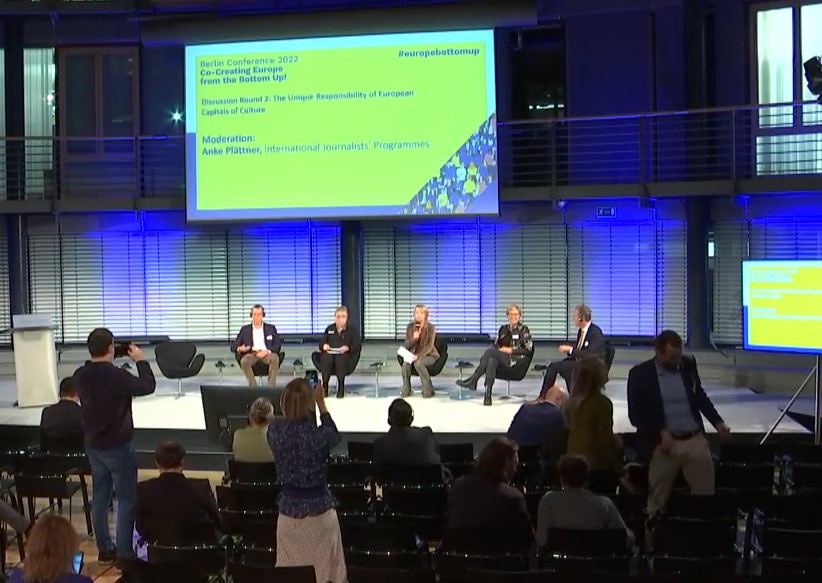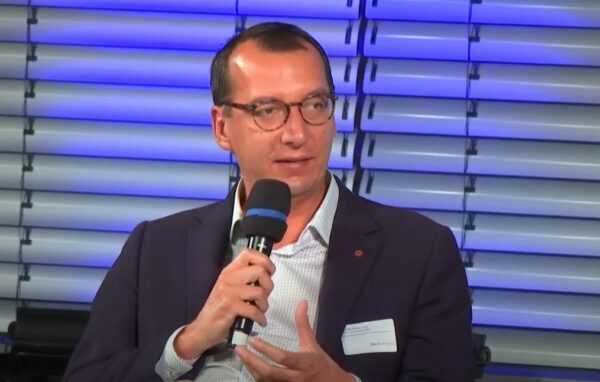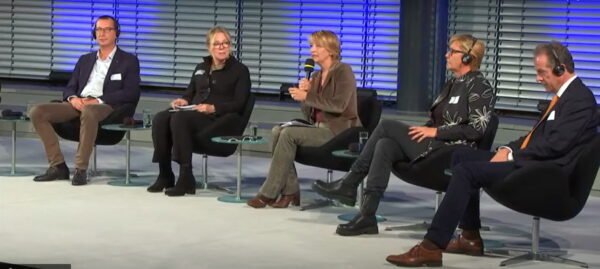
Mayor Filipović attending a debate dedicated to the cities, European capitals of culture
Marko Filipović, mayor of Rijeka, took part in the conference “Co-Creating Europe from the Bottom Up!” in Berlin, organised by the Zukunft Berlin Foundation.
The conference, which takes place on 8 and 9 November gathers representatives from civil society organisations, art and culture, and politics, who discuss the importance of a bottom-up approach for the future of Europe, that is, the responsibility of Europeans to contribute to the success of the common European project.
The conference is dedicated to the role of cities and regions, as well as their citizens as key stakeholders of the bottom-up approach. Mayor Filipović participated in a plenary debate dedicated to the unique responsibility of cities – European capitals of culture in creating successful Europe.

MAYOR FILIPOVIĆ SPOKE ABOUT THE IMPORTANCE OF CULTURE TO CONNECT EUROPEAN CITIES
Mayor Filipović pointed out that in designing and implementing the ECC project, Rijeka had been guided by the main idea of the European capitals of culture projects, launched not only to present what cities could offer at local level, but also in the European context. “The Rijeka programme of the European Capital of Culture, was based on the same foundations as the European Union, promoting the ideas of freedom and communion”, said Filipović.
“Unfortunately, Rijeka won the title of European Capital of Culture in 2020, when the coronavirus epidemic broke out only a month and a half after the grand opening ceremony. Although we had to cancel part of the planned programmes, in cooperation with the city’s cultural institutions, associations and other partners, we adapted to the new situation, showing our resilience. During the summer, 390 programmes were held in Rijeka, attended by more than 53,000 visitors,” said Mayor Filipović.

PANEL DEDICATED TO THE RESPONSIBILITY OF CITIES, ECC IN CREATING THE EUROPEAN FUTURE
Rijeka also showed its resilience by continuing to invest capital in cultural facilities, despite the pandemic, as the major legacy of the European Capital of Culture project. In the Benčić complex, we have refurbished the Children’s House and the Sugar Refinery Palace, as the Rijeka Civic Museum’s new home, while the new building of the Rijeka Civic Library and the ship Galeb are still under reconstruction .
The new cultural infrastructure and many collaborations achieved through the European Capitals of Culture initiative are a good basis for a further promotion of Rijeka and the creation of new cultural ties with Europe, said Mayor Filipović, adding that he sees culture as a good basis for even stronger connections between European cities.
In addition to Mayor Filipović, representatives of other cities that hold or have applied for the prestigious title of European Capital of Culture took part in the panel discussion: form Krakow in Poland, Averi in Portugal, Chemnitz in Germany, Nova Gorica in Slovenia, and the Marseille-Provence region in France, as well as Hannes Heide, a member European Parliament.
(photo: europebottomup.eu)

